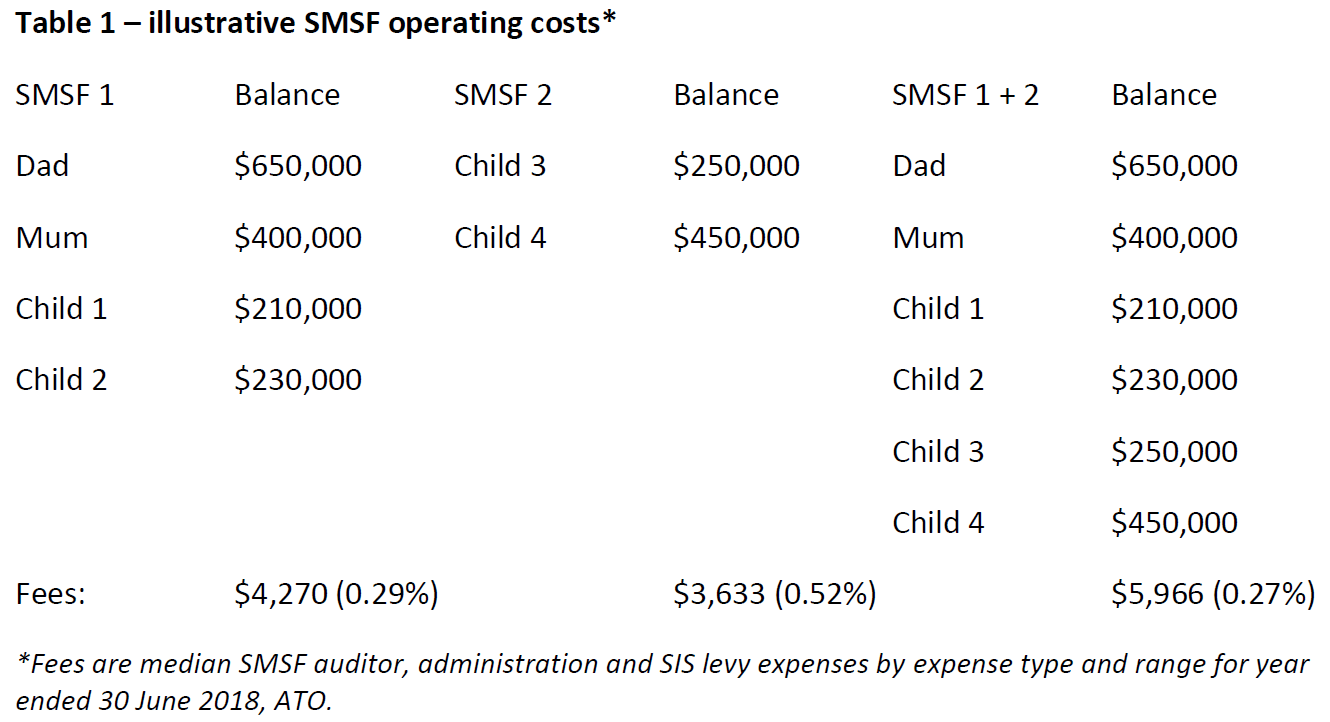- SMSF Association Media Release
The SMSF Association says lower fees is the key reason why the legislation increasing the size of a self-managed super fund (SMSF) from four to six members should become law.
In its submission to the Senate Standing Committee on Economics into the legislation, called the Treasury Laws Amendment (SMSFs) Bill 2020, the Association says not only will it allow lower fees, but the measure will also offer greater investment choice, increase superannuation engagement and improve estate planning and exit strategies for those who wish to take up the option.
SMSF Association CEO John Maroney says: “While acknowledging any substantial take-up of this option is unlikely – about 93% of SMSFs have only one or two members – we believe increasing membership from four to six will provide additional flexibility and choice without raising any substantial integrity or administration issues for the SMSF sector.
“We believe this is strengthened by the fact that any administrative risks that may currently exist with four member SMSFs have not been detrimental to the sector. It will allow families with five and six members the option to establish an SMSF together or allow the remaining members of a family to join a fund that is an unavailable to larger families who must have separate funds.
“Our only note of caution is that any SMSF adding extra members should be properly planned and accompanied by specialist SMSF advice to reduce any potential risks.”
On the issue of costs, Maroney says including more members is likely to have positive effect on fees because SMSFs are typically charged on a fixed administration basis regardless of the number of members and without consideration of the account balance.
“Pooling superannuation balances in one SMSF can therefore avoid the costs of running separate SMSFs. Furthermore, if the pool of assets is increased in an SMSF through including more members, then the SMSF will become more cost-efficient as the fees reduce as a percentage of the total assets of the fund (see Table 1).
“With regards to pooling superannuation balances, an increase in SMSF members means individuals can enjoy the benefits of consolidating assets, increase investment opportunities and have greater flexibility to diversify.
“Importantly, SMSFs can have different investment strategies for different members. This means engaged superannuation members can have control over their assets and can choose a risk profile that is entirely appropriate to them, not one designed for a collective range of individuals.”
From an intergenerational perceptive, Maroney says if children and family members have knowledge about and are part of how their parents’ affairs, finances and superannuation are being managed, this familiarity can facilitate improved and more timely engagement with superannuation and estate planning across the generations.
“The Association notes the possibility that allowing larger SMSFs, especially where adult children are members of the same SMSF as their parents, could give rise to opportunities of elder abuse and complex estate planning disputes. However, even without larger SMSFs, these problems can occur and can be driven by non-members.
Maroney concludes: “We believe this amendment should be regarded as a non-controversial change to the SMSF sector that promotes more choice and flexibility in the system without posing any significant integrity issues, especially if consumers seek specialist SMSF advice.”




